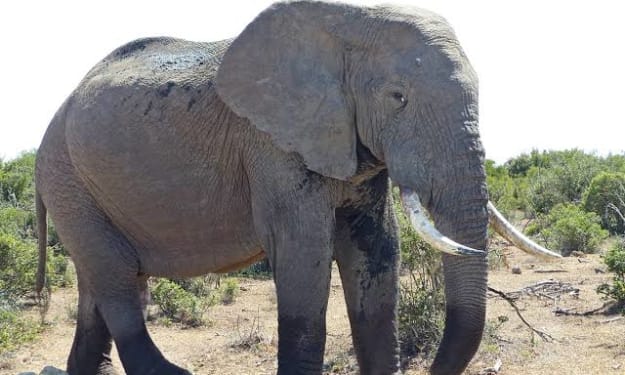RUSSIA IS NOT PREPARED FOR WAR AGAINST UKRAINE
WAR

The evolving conflict between Ukraine and Russia has brought to light a series of challenges and setbacks for the Russian military, which have significant implications for the ongoing conflict and the region as a whole. As news continues to emerge from the front lines, it's becoming increasingly clear that the situation isn't favorable for Russia. A closer examination of the situation reveals a complex web of factors contributing to Russia's struggles, including military losses, equipment deficiencies, training issues, and broader geopolitical considerations.
One of the most striking aspects of the conflict has been the reported losses of heavy equipment by Russia. Verified reports indicate a staggering 10,741 instances of heavy equipment losses, with 2,054 tanks either destroyed, abandoned, or captured. Though estimates without visual confirmation suggest a lower figure, even 3,000 losses would be a significant blow to Russia's military capabilities. Additionally, over half of Russia's Ka-52 attack helicopter fleet has been lost, including five helicopters in a single week during a Ukrainian counteroffensive in June. These losses undoubtedly weaken Russia's ability to project power and maintain dominance on the battlefield.
Casualty figures also paint a grim picture for Russia. Documents leaked via the Discord platform revealed estimates from the Department of Defense indicating that Russia's casualties range between 189,500 to 223,000, with fatalities ranging from 35,500 to 43,000. These figures, which predate the Ukrainian counteroffensive, underscore the toll the conflict has taken on Russian forces. It's worth noting that the credibility of these figures has yet to be fully verified, but they point to a significant human cost for Russia.
Historical performance has been a concern for Russia's military. Past conflicts, such as the Chechen wars, revealed instances of underperformance and failures when facing determined adversaries. In the first Chechen war, Russia suffered substantial losses against a much smaller rebel force, shedding light on deficiencies in their military effectiveness. Even the elite paratroopers, highly revered in Russian society, experienced embarrassing failures. These historical precedents highlight the gap between Russia's performance in exercises and real-world combat situations.
The core issue contributing to Russia's military woes is its systemic corruption. Corruption has hampered Russia's efforts to transition to a Western-style professional military, with conscription still playing a significant role. While progress had been made towards creating a volunteer-based force, conscripts still accounted for a notable portion of combat arms personnel, including elite units like Spetsnaz. The contrast between volunteer soldiers' higher morale and proficiency and conscripts' limited commitment is stark. This difference in commitment also affects the efficiency and expertise of the military's leadership structure.
A critical aspect of any modern military is the role of non-commissioned officers (NCOs). These experienced enlisted personnel are crucial for maintaining discipline, training, and operational effectiveness. However, Russia's lack of a robust NCO corps places additional stress on its officers and leads to a delegation of authority to senior conscripts or low-ranking recruits. This undermines the military's ability to effectively carry out orders and maintain unit cohesion.
Another damaging consequence of Russia's military culture is the pervasive issue of hazing. The practice of hazing, known as the "rule of the grandfathers," has created a toxic environment within the Russian armed forces. This culture of abuse and violence, which trickles down from higher ranks to junior conscripts, erodes unit cohesion and retention rates. Hazing not only compromises the military's operational effectiveness but also dissuades talented recruits from joining and staying within the ranks.
Russia's training practices have also come under scrutiny. A stark contrast exists between Western training standards and Russia's approach. Instead of thorough training with frequent inspections, Russia often relies on "picture reports," which document minimal training activity and fail to ensure proficiency. This lack of rigorous training hampers the military's readiness and effectiveness on the battlefield. Additionally, Russia's focus on quantity over quality in its training budget allocation has contributed to corruption and inefficiency.
Sanctions have further exacerbated Russia's challenges. As the most sanctioned state in history, Russia's access to crucial Western technology and components has been restricted. The defense industry relies heavily on imports for electronics, optics, and microchips, which has significantly impacted the quality of its equipment. Russia's attempts to circumvent sanctions by relying on lower-quality alternatives have strained its technological capabilities and ability to maintain combat readiness.
The potential involvement of China has become a point of interest in this conflict. While China has shown reluctance to openly provide military aid to Russia, its strategic interests in maintaining a credible threat to Europe might lead to increased support in the future. Such assistance could alter the course of the conflict, but it would likely draw international condemnation and complicate global dynamics.
In the face of these challenges, Russia's internal stability remains largely intact. Despite significant losses, casualties, and military setbacks, there is little indication of mass protests or civil unrest within Russia against President Putin's leadership. This resilience suggests a complex interplay of political control, media manipulation, and public sentiment that allows the government to maintain its grip on power.
In conclusion, the evolving conflict in Ukraine has illuminated a series of complex challenges facing the Russian military. From equipment losses and casualties to historical underperformance and systemic corruption, these factors collectively contribute to Russia's struggles on the battlefield. The role of training deficiencies, sanctions, and the potential involvement of external actors further shape the trajectory of the conflict. As the situation continues to unfold, it remains to be seen how Russia will navigate these challenges and adapt to the evolving dynamics of the conflict.
About the Creator
Enjoyed the story? Support the Creator.
Subscribe for free to receive all their stories in your feed. You could also pledge your support or give them a one-off tip, letting them know you appreciate their work.





Comments
There are no comments for this story
Be the first to respond and start the conversation.